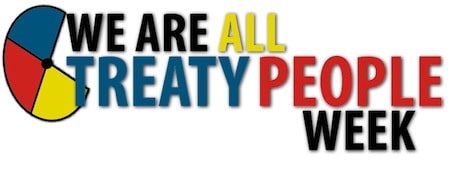BEN FAWCETT
Opinions Writer
When one reflects upon the general relationship between Aboriginal and non-Aboriginal Canadian peoples throughout Western Canada, ignorance, misunderstanding and blatant racism are characteristics that swiftly come to mind.
 Particularly in Saskatchewan, prejudice can seem as commonplace as the socio-economic disparities between Aboriginal and non-Aboriginal peoples of this province. Many individuals would assert that the difficult circumstances which many Aboriginal people face are of their own doing and that external or historical factors play little to no role in the modern context.
Particularly in Saskatchewan, prejudice can seem as commonplace as the socio-economic disparities between Aboriginal and non-Aboriginal peoples of this province. Many individuals would assert that the difficult circumstances which many Aboriginal people face are of their own doing and that external or historical factors play little to no role in the modern context.
I’m continually appalled by the prevalence of this and other brazen misconceptions so I was naturally intrigued when I learned that the University of Saskatchewan Students’ Union was planning “We Are All Treaty People Week” in an effort to educate students on the meaning and significance of our historical relationships with, and commitments to, each other.
I was able to attend four of the five presentations between Oct. 4 to 8 and was thoroughly impressed by the content, succinctness and practicality of the topics covered. Some issues that were explored include the historical significance of Canada’s treaty-making tradition, modern negotiations and educational developments within the numbered treaty territories, the necessity of good health in Aboriginal communities and the future of modern treaty negotiations as they relate to self-government agreements among First Nations, Métis and Inuit groups that do not hold prior treaties with Canada. Although each presentation focused on a specific topic, the speakers collectively shaped some general themes of which every citizen of this province and country should be aware.
Foremost was the notion that the treaties agreed upon by First Nations and Euro-Canadian settlers are far more than dated legal contracts; they are spiritual, everlasting covenants from which we all benefit and hold eternal obligations to one another. Secondly, one of the principle reasons that poverty is entrenched among much of Western Canada’s Aboriginal population is because federal and provincial governments have historically failed to uphold their treaty obligations. This neglect, however, may be reconciled if our collective attitudes toward treaties improve and Canada rescinds its colonial approach to Aboriginal governance. Thirdly, treaties may be harnessed in the modern context to not only empower Aboriginal Peoples with increased autonomy and economic capacities, but to also aid in the development of strong communities through improvements in health, education and commerce.
Finally, it is obvious that the non-Aboriginal populations of Saskatchewan and Canada must become far better educated on issues involving Aboriginal Peoples in order to foster a social atmosphere that breeds positive change. For these reasons, I applaud the USSU for hosting “We Are All Treaty People Week” and sincerely hope that similar initiatives are soon to follow.
– –
image: USSU